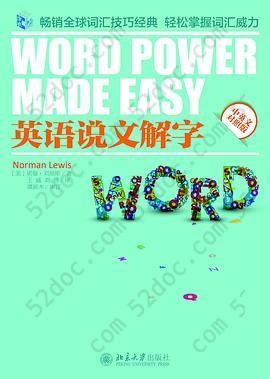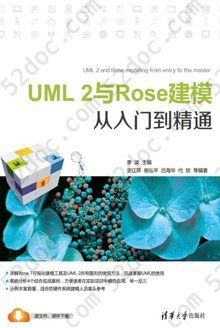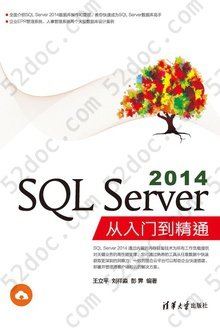注重体验与质量的电子书资源下载网站
分类于: 设计 计算机基础
简介

英语说文解字 豆 8.8分
资源最后更新于 2020-08-26 06:29:35
作者:[美] 里维斯 (Norman Lewis)
译者:王威
出版社:北京大学出版社
出版日期:2014-01
ISBN:9787301239476
文件格式: pdf
标签: 英语 英语学习 外语学习 单词 词汇 英語 语言学 语言
简介· · · · · ·
Word Power Made Easy 一本与众不同、自成一格的词汇学习书。中国市场现有的词汇书籍基本全部局限于对个别词根的举例说明,仅仅告之词根的含义,再列举几个实例。Word Power Made Easy 以词汇所在语境为入手点,从概念入手,强调概念形成的先决条件,再对与概念相对应的词汇进行讲解,随后进行大量练习,练习设计听、说、读、写。每个章节之后穿插语法讲解。语法讲解客观、新颖,同时也是中国市场缺少的语法讲解方式。
目录
正文 HOW TO USE THIS BOOK FOR MAXIMUM BENEFIT
如何从本书获得最大收益(原序)∕ⅰ
Why this is not a book to be read; how to learn to pronounce the new words correctly; how the etymological approach works better than any other method for learning words quickly and permanently; how to master nouns, verbs, adjectives, and adverbs in five to ten minutes; how to use the psychological principles of learning to sharpen your verbal skills.
为什么本书不是用于阅读;如何掌握新单词的正确读音;为何利用词源快速学习词汇、长效记忆词汇的方法优于其他方法;如何用5到10分钟掌握名词、动词、形容词和副词;如何运用关于学习的心理学原理来提升语言技巧。
PART ONEGETTING OFF TO A GOOD START
第一部分建立一个良好的开端
1. HOW TO TEST YOUR PRESENT VOCABULARY
如何测试现有词汇量∕2
How vocabulary growth of the average adult compares with that of children; a simple test to show you whether your vocabulary is below average, average, above average, excellent, or superior in range, verbal speed, and responsiveness; important evidence of the close relationship between vocabulary and success.
一般成年人学习词汇的速度和孩子相比怎么样;一个简单的测试,检验你的词汇范围、说话速度和反应能力,来确定你的词汇量是低于平均水平、高于平均水平、优秀还是非常优秀;词汇量和成功密切相关的重要证据。
2. HOW TO START BUILDING YOUR VOCABULARY
如何开始构建词汇∕17
How building your vocabulary will enrich your thinking, increase your selfassurance in speaking and writing, and give you a better understanding of the world and of yourself; why it is necessary to recapture the “powerful urge to learn”; why your age makes little difference; how this book is designed to build a collegesize vocabulary in two to three months.
扩大词汇量如何能丰富你的思维,增强你说话和写作的自信,使你更好地理解这个世界和你自己;为什么重新获得“强烈的学习欲望”尤为重要;为什么扩展词汇量与年龄无关;本书如何能够使你在两到三个月之内达到大学水平的词汇量。
3. HOW TO TALK ABOUT PERSONALITY TYPES (Sessions 1-3)
如何描述个性类型∕25
Words that describe all kinds and sorts of people, including terms for selfinterest, reactions to the world, attitudes to others, skill and awkwardness, marital states, hatred of man, of woman, and of marriage. How one session of pleasant work can add more words to your vocabulary than the average adult learns in an entire year; why it is necessary to develop a comfortable time schedule and then stick to it.
描述各种各样个性类型的人物,包括与自我利益、世界观、对他人的态度、通达与笨拙、婚姻状况、厌恶男人、厌恶女人和厌恶婚姻生活等概念相关的术语。愉快地学习一段时间所掌握的词汇量,如何能比一般成年人一整年学到的词汇量还多;为什么制订一个合适的学习时间表并坚持执行是必不可少的。
4. HOW TO TALK ABOUT DOCTORS (Sessions 4-6)
如何描述各科医生∕52
Words that relate to medical specialists and specialties. Terms for experts in disorders of the female organs; childhood diseases; skin ailments; skeletal deformities; heart ailments; disorders of the nerves, mind, and personality. How selfdiscipline and persistence will ultimately lead to complete mastery over words,
与医学专家和专业相关的词汇;治疗女性组织紊乱、儿童疾病、皮肤疾病、骨骼畸形、心脏疾病,以及神经、心智、人格紊乱等疾病的专家术语;自律和恒心如何引导你完全掌握词汇。
5. HOW TO TALK ABOUT VARIOUS PRACTITIONERS
(Sessions 7-10)
如何描述各种从业者∕79
Words that describe a variety of professions, including those dealing with the human mind, teeth, vision, feet, handwriting, aging, etc. How you are becoming more and more conscious of the new words you meet in your reading.
描述各种各样职业的词汇,包括那些与人的心理、牙齿、视力、脚、书写、衰老等相关的职业。阅读时,你对新词如何变得越来越警觉。
6. HOW TO TALK ABOUT SCIENCE AND SCIENTISTS
(Sessions 11-13)
如何描述各门科学及科学家∕112
Words that describe students of human development, of the heavens, of the earth, of plant and animal life, of insect forms, of words and language, of social organization. Books on psychology that will add immeasurably both to your store of new words and ideas, and also to your under standing of yourself and of other people.
描述人类进化、天体、地球、植物与动物、昆虫、词汇与语言、社会组织等科目的学生的词汇。关于心理学的书籍不但可以极大地丰富你的新词,储备新概念,还使你更好地了解自己和其他人。
7. HOW TO TALK ABOUT LIARS AND LYING (Sessions 14-17)
如何描述各类骗子与谎言∕146
Words that accurately label different types of liars and lying. Terms that relate to fame, artistry, reform, heredity, time, place, suffering, etc. Four lasting benefits you have begun to acquire from your work in vocabulary building.
准确描述不同种类骗子与谎言的词汇;与名誉、艺术才能、改造、遗传、时间、地点、苦难等相关的词汇。你从词汇扩建的学习中获得的四个长远利益。
8. HOW TO CHECK YOUR PROGRESS(Session 18)
如何检验你的进步∕179
Comprehensive Test I :A 120item test of your learning in Part I.
综合测验Ⅰ:测试包含120道题,测验第一部分的学习成果。
PART TWOGAINING INCREASED MOMENTUM
第二部分加大马力
9. HOW TO TALK ABOUT ACTIONS (Sessions 19-23)
如何描述各种行为∕187
Verbs that accurately describe important human activities. Excursions into expressive terms for good and evil, doing, saying, wishing, and pleasing. Further proof that you can learn, in a few weeks or less, more new words than the average adult learns in an entire year.
描述人类重要行为的动词,了解一些表达好坏、行为、语言、愿望和取悦他人的相关术语。更多的证据证明,你能通过几个星期或更短的时间掌握普通成年人一整年才能掌握的新词。
10. HOW TO TALK ABOUT VARIOUS SPEECH HABITS
(Sessions 24-27)
如何描述多样的语言习惯∕237
Words that explore in depth all degrees and kinds of talk and silence. More books that will increase your alertness to new ideas and new words.
准确描述不同程度和不同种类的健谈和寡言。更多能够增加你对新概念和新词汇敏感程度的书目。
11. HOW TO INSULT YOUR ENEMIES (Sessions 28-31)
如何侮辱敌人∕279
Terms for describing a disciplinarian, toady, dabbler, provocative woman, flag waver, possessor of a onetrack mind, freethinker, sufferer from imaginary ailments, etc. Excursions into words relating to father and mother, murder of all sorts, sexual desires, and various manias and phobias. Magazines that will help you build your vocabulary.
描述严格的纪律奉行者、谄媚之人、浅涉文艺之人、蛮横的女人、狂热的爱国者、独行其是之人、自由的思想者、饱受虚构的疾病折磨的人等概念的术语。了解一些与父母、各种谋杀、性欲、各种疯狂和恐惧相关的词汇。对词汇的扩建有帮助的推荐书目。
12. HOW TO FLATTER YOUR FRIENDS (Sessions 32-37)
如何奉承朋友∕339
Terms for describing friendliness, energy, honesty, mental keenness, bravery, charm, sophistication, etc. Excursions into expressive words that refer to ways of eating and drinking,believing and disbelieving, looking and seeing, facing the present, past, and future, and living in the city and country. How the new words you are learning have begun to influence your thinking.
描述友善、精力、诚实、敏锐的思维、勇敢、魅力、老练等概念的术语。了解描述吃喝方式,信与不信,看与看见,面对现在、过去和将来,居住于城市和乡村的方式的表意词汇。你学到的新词给自己的思维带来了怎样的影响?
13. HOW TO CHECK YOUR PROGRESS (Session 38)
如何检验你的进步∕391
Comprehensive Test II:A 120item test of your achievement in Part II.
综合测验Ⅱ:测试包含120道题,测验第二部分的学习成果。
PART THREEFINISHING WITH A FEELING
OF COMPLETE SUCCESS
第三部分 以圆满成功的感觉收尾
14. HOW TO TALK ABOUT COMMON PHENOMENA AND
OCCURRENCES (Sessions 39-41)
如何描述普遍现象和事件∕398
Words for poverty and wealth, direct and indirect emotions, not calling a spade a spade, banter and other light talk, animallike contentment, homesickness, meateating, and different kinds of secrecy. Excursions into terms expressive of goodness, of hackneyed phraseology, of human similarity to various animals, of kinds of sound,etc. How to react to the new words you meet in your reading.
有关贫穷与富裕、直接和间接情感、委婉的表达、俏皮话、好似动物般的满足感、乡愁、食肉和不同种类秘密的词汇。涉及表达富足、陈腐、人类与各种动物的相似性,以及各种声音等的词汇。如何处理阅读中遇到的新单词。
15. HOW TO TALK ABOUT WHAT GOES ON (Sessions 42-44)
如何描述正在发生的事情∕449
Verbs that show exhaustion, criticism, selfsacrifice, repetition, mental stagnation, pretense, hinting, soothing, sympathizing, indecision, etc. How you can increase your vocabulary by picking your friends’ brains.
与疲惫、批评、自我牺牲、重复、思想的滞后、假装、暗示、抚慰、同情、犹豫不决等概念相关的动词。如何通过听取朋友的见解来增加自己的词汇。
16. HOW TO TALK ABOUT A VARIETY OF PERSONAL
CHARACTERISTICS (Sessions 45-46)
如何描述各种个性特征∕476
Adjectives that describe insincere humility, dissatisfaction, snobbery, courtesy to women, financial embarrassment, sadness, etc. How increasing your vocabulary has begun to change the intellectual climate of your life.
描述虚伪的谦逊、不满足感、势利、对女性的殷勤、经济拮据、悲伤等概念的形容词。逐渐扩展的词汇给你的思想氛围带来了怎样的变化。
17. HOW TO CHECK YOUR PROGRESS (Session 47)
如何检验你的进步∕496
Comprehensive Test III:A 120item test of your achievement in Part III
综合测验Ⅲ:测试包含120道题,测验第三部分的学习成果。
18. HOW TO CHECK YOUR STANDING AS AN AMATEUR
ETYMOLOGIST
如何检验你对词源掌握的程度∕502
Answers to Teaser Questions in Chapters 3-7, 9-12, and 14-16.
第3-7章、第9-12章和第14-16章的难题答案。
19. HOW TO KEEP BUILDING YOUR VOCABULARY
如何不断扩建词汇∕519
The five simple, but vital, steps to take so that you can keep your vocabulary ever developing, ever increasing. How your vocabulary will continue to grow only if you remain on the search for new ideas. The best means for making this search successful.
保证词汇继续增长、继续扩展的五个简单但重要的步骤。只有不断探索新概念,你的词汇量才会继续增加;使这种探索取得成功的最佳手段。
BRIEF INTERMISSIONS
简短插叙 TEST YOUR GRAMMAR
语法小测验∕49
A thirtysentence test of your ability to use words correctly. Is your English average, above average, or nearly perfect?
测验包含30个句子。测验旨在考查你正确使用词汇的能力。你的英语是普通水平、高于普通水平还是近乎完美?
RANDOM NOTES ON MODERN USAGE
现代用法随笔∕74
Grammatical usage is becoming more liberal every day—is your speech neither affected nor illiterate? Simple rules for fifteen important expressions.
语法变得日益自由——你的语言表达是否既不动人又不文雅?15个重要表达的简单规则。
HOW GRAMMAR CHANGES
语法如何变化∕106
Grammar follows the speech habits of educated people—how does your grammar measure up in your use of nine common expressions?
语法以大多数受教育人士的语言习惯为依据——参照9个常见表达的用法,你的语法达到标准了吗?
HOW TO AVOID BEING A PURIST
如何避免成为语言纯正癖者∕141
There is no reason for being overprecise in your speech—but do you also avoid barbarisms and illiterate expressions.
过度纠结于语言表达的准确与否是不必要的——但是,你是否也应该避免粗俗或不文雅的表达呢?
HOW TO SPEAK NATURALLY
如何自然表达∕232
Nine more expressions of which you must be careful.
你必须谨慎使用的另外9个表达法。
DO YOU ALWAYS USE THE PROPER WORD
你总是能够恰当地使用词语吗∕277
A twentyfive sentence check on your increasing linguistic ability.
测试包含25个句子,测验你日益增强的语言能力。
SOME INTERESTING DERIVATIONS
一些有趣的词源∕335
How words come from the names of people and places.
人名与地名是如何成为常见词汇的。
HOW TO SPELL A WORD
如何拼写单词∕438
You can eliminate all your spelling difficulties—provided you know the tricks.
你能够消除自己所有的拼写难题——前提是掌握窍门。
TAKE THIS SPELLING TEST
拼写测验∕474
Proof that you are becoming a better speller.
证明你的拼写更加完善。
ANOTHER CHECK ON YOUR SPELLING
另一个拼写测验∕494
Further tests to nail home the correct spellings of common but difficult words.
通过进一步测验,巩固一些词汇的正确拼写。这些词汇虽然常见,拼写却使人头痛。
如何从本书获得最大收益(原序)∕ⅰ
Why this is not a book to be read; how to learn to pronounce the new words correctly; how the etymological approach works better than any other method for learning words quickly and permanently; how to master nouns, verbs, adjectives, and adverbs in five to ten minutes; how to use the psychological principles of learning to sharpen your verbal skills.
为什么本书不是用于阅读;如何掌握新单词的正确读音;为何利用词源快速学习词汇、长效记忆词汇的方法优于其他方法;如何用5到10分钟掌握名词、动词、形容词和副词;如何运用关于学习的心理学原理来提升语言技巧。
PART ONEGETTING OFF TO A GOOD START
第一部分建立一个良好的开端
1. HOW TO TEST YOUR PRESENT VOCABULARY
如何测试现有词汇量∕2
How vocabulary growth of the average adult compares with that of children; a simple test to show you whether your vocabulary is below average, average, above average, excellent, or superior in range, verbal speed, and responsiveness; important evidence of the close relationship between vocabulary and success.
一般成年人学习词汇的速度和孩子相比怎么样;一个简单的测试,检验你的词汇范围、说话速度和反应能力,来确定你的词汇量是低于平均水平、高于平均水平、优秀还是非常优秀;词汇量和成功密切相关的重要证据。
2. HOW TO START BUILDING YOUR VOCABULARY
如何开始构建词汇∕17
How building your vocabulary will enrich your thinking, increase your selfassurance in speaking and writing, and give you a better understanding of the world and of yourself; why it is necessary to recapture the “powerful urge to learn”; why your age makes little difference; how this book is designed to build a collegesize vocabulary in two to three months.
扩大词汇量如何能丰富你的思维,增强你说话和写作的自信,使你更好地理解这个世界和你自己;为什么重新获得“强烈的学习欲望”尤为重要;为什么扩展词汇量与年龄无关;本书如何能够使你在两到三个月之内达到大学水平的词汇量。
3. HOW TO TALK ABOUT PERSONALITY TYPES (Sessions 1-3)
如何描述个性类型∕25
Words that describe all kinds and sorts of people, including terms for selfinterest, reactions to the world, attitudes to others, skill and awkwardness, marital states, hatred of man, of woman, and of marriage. How one session of pleasant work can add more words to your vocabulary than the average adult learns in an entire year; why it is necessary to develop a comfortable time schedule and then stick to it.
描述各种各样个性类型的人物,包括与自我利益、世界观、对他人的态度、通达与笨拙、婚姻状况、厌恶男人、厌恶女人和厌恶婚姻生活等概念相关的术语。愉快地学习一段时间所掌握的词汇量,如何能比一般成年人一整年学到的词汇量还多;为什么制订一个合适的学习时间表并坚持执行是必不可少的。
4. HOW TO TALK ABOUT DOCTORS (Sessions 4-6)
如何描述各科医生∕52
Words that relate to medical specialists and specialties. Terms for experts in disorders of the female organs; childhood diseases; skin ailments; skeletal deformities; heart ailments; disorders of the nerves, mind, and personality. How selfdiscipline and persistence will ultimately lead to complete mastery over words,
与医学专家和专业相关的词汇;治疗女性组织紊乱、儿童疾病、皮肤疾病、骨骼畸形、心脏疾病,以及神经、心智、人格紊乱等疾病的专家术语;自律和恒心如何引导你完全掌握词汇。
5. HOW TO TALK ABOUT VARIOUS PRACTITIONERS
(Sessions 7-10)
如何描述各种从业者∕79
Words that describe a variety of professions, including those dealing with the human mind, teeth, vision, feet, handwriting, aging, etc. How you are becoming more and more conscious of the new words you meet in your reading.
描述各种各样职业的词汇,包括那些与人的心理、牙齿、视力、脚、书写、衰老等相关的职业。阅读时,你对新词如何变得越来越警觉。
6. HOW TO TALK ABOUT SCIENCE AND SCIENTISTS
(Sessions 11-13)
如何描述各门科学及科学家∕112
Words that describe students of human development, of the heavens, of the earth, of plant and animal life, of insect forms, of words and language, of social organization. Books on psychology that will add immeasurably both to your store of new words and ideas, and also to your under standing of yourself and of other people.
描述人类进化、天体、地球、植物与动物、昆虫、词汇与语言、社会组织等科目的学生的词汇。关于心理学的书籍不但可以极大地丰富你的新词,储备新概念,还使你更好地了解自己和其他人。
7. HOW TO TALK ABOUT LIARS AND LYING (Sessions 14-17)
如何描述各类骗子与谎言∕146
Words that accurately label different types of liars and lying. Terms that relate to fame, artistry, reform, heredity, time, place, suffering, etc. Four lasting benefits you have begun to acquire from your work in vocabulary building.
准确描述不同种类骗子与谎言的词汇;与名誉、艺术才能、改造、遗传、时间、地点、苦难等相关的词汇。你从词汇扩建的学习中获得的四个长远利益。
8. HOW TO CHECK YOUR PROGRESS(Session 18)
如何检验你的进步∕179
Comprehensive Test I :A 120item test of your learning in Part I.
综合测验Ⅰ:测试包含120道题,测验第一部分的学习成果。
PART TWOGAINING INCREASED MOMENTUM
第二部分加大马力
9. HOW TO TALK ABOUT ACTIONS (Sessions 19-23)
如何描述各种行为∕187
Verbs that accurately describe important human activities. Excursions into expressive terms for good and evil, doing, saying, wishing, and pleasing. Further proof that you can learn, in a few weeks or less, more new words than the average adult learns in an entire year.
描述人类重要行为的动词,了解一些表达好坏、行为、语言、愿望和取悦他人的相关术语。更多的证据证明,你能通过几个星期或更短的时间掌握普通成年人一整年才能掌握的新词。
10. HOW TO TALK ABOUT VARIOUS SPEECH HABITS
(Sessions 24-27)
如何描述多样的语言习惯∕237
Words that explore in depth all degrees and kinds of talk and silence. More books that will increase your alertness to new ideas and new words.
准确描述不同程度和不同种类的健谈和寡言。更多能够增加你对新概念和新词汇敏感程度的书目。
11. HOW TO INSULT YOUR ENEMIES (Sessions 28-31)
如何侮辱敌人∕279
Terms for describing a disciplinarian, toady, dabbler, provocative woman, flag waver, possessor of a onetrack mind, freethinker, sufferer from imaginary ailments, etc. Excursions into words relating to father and mother, murder of all sorts, sexual desires, and various manias and phobias. Magazines that will help you build your vocabulary.
描述严格的纪律奉行者、谄媚之人、浅涉文艺之人、蛮横的女人、狂热的爱国者、独行其是之人、自由的思想者、饱受虚构的疾病折磨的人等概念的术语。了解一些与父母、各种谋杀、性欲、各种疯狂和恐惧相关的词汇。对词汇的扩建有帮助的推荐书目。
12. HOW TO FLATTER YOUR FRIENDS (Sessions 32-37)
如何奉承朋友∕339
Terms for describing friendliness, energy, honesty, mental keenness, bravery, charm, sophistication, etc. Excursions into expressive words that refer to ways of eating and drinking,believing and disbelieving, looking and seeing, facing the present, past, and future, and living in the city and country. How the new words you are learning have begun to influence your thinking.
描述友善、精力、诚实、敏锐的思维、勇敢、魅力、老练等概念的术语。了解描述吃喝方式,信与不信,看与看见,面对现在、过去和将来,居住于城市和乡村的方式的表意词汇。你学到的新词给自己的思维带来了怎样的影响?
13. HOW TO CHECK YOUR PROGRESS (Session 38)
如何检验你的进步∕391
Comprehensive Test II:A 120item test of your achievement in Part II.
综合测验Ⅱ:测试包含120道题,测验第二部分的学习成果。
PART THREEFINISHING WITH A FEELING
OF COMPLETE SUCCESS
第三部分 以圆满成功的感觉收尾
14. HOW TO TALK ABOUT COMMON PHENOMENA AND
OCCURRENCES (Sessions 39-41)
如何描述普遍现象和事件∕398
Words for poverty and wealth, direct and indirect emotions, not calling a spade a spade, banter and other light talk, animallike contentment, homesickness, meateating, and different kinds of secrecy. Excursions into terms expressive of goodness, of hackneyed phraseology, of human similarity to various animals, of kinds of sound,etc. How to react to the new words you meet in your reading.
有关贫穷与富裕、直接和间接情感、委婉的表达、俏皮话、好似动物般的满足感、乡愁、食肉和不同种类秘密的词汇。涉及表达富足、陈腐、人类与各种动物的相似性,以及各种声音等的词汇。如何处理阅读中遇到的新单词。
15. HOW TO TALK ABOUT WHAT GOES ON (Sessions 42-44)
如何描述正在发生的事情∕449
Verbs that show exhaustion, criticism, selfsacrifice, repetition, mental stagnation, pretense, hinting, soothing, sympathizing, indecision, etc. How you can increase your vocabulary by picking your friends’ brains.
与疲惫、批评、自我牺牲、重复、思想的滞后、假装、暗示、抚慰、同情、犹豫不决等概念相关的动词。如何通过听取朋友的见解来增加自己的词汇。
16. HOW TO TALK ABOUT A VARIETY OF PERSONAL
CHARACTERISTICS (Sessions 45-46)
如何描述各种个性特征∕476
Adjectives that describe insincere humility, dissatisfaction, snobbery, courtesy to women, financial embarrassment, sadness, etc. How increasing your vocabulary has begun to change the intellectual climate of your life.
描述虚伪的谦逊、不满足感、势利、对女性的殷勤、经济拮据、悲伤等概念的形容词。逐渐扩展的词汇给你的思想氛围带来了怎样的变化。
17. HOW TO CHECK YOUR PROGRESS (Session 47)
如何检验你的进步∕496
Comprehensive Test III:A 120item test of your achievement in Part III
综合测验Ⅲ:测试包含120道题,测验第三部分的学习成果。
18. HOW TO CHECK YOUR STANDING AS AN AMATEUR
ETYMOLOGIST
如何检验你对词源掌握的程度∕502
Answers to Teaser Questions in Chapters 3-7, 9-12, and 14-16.
第3-7章、第9-12章和第14-16章的难题答案。
19. HOW TO KEEP BUILDING YOUR VOCABULARY
如何不断扩建词汇∕519
The five simple, but vital, steps to take so that you can keep your vocabulary ever developing, ever increasing. How your vocabulary will continue to grow only if you remain on the search for new ideas. The best means for making this search successful.
保证词汇继续增长、继续扩展的五个简单但重要的步骤。只有不断探索新概念,你的词汇量才会继续增加;使这种探索取得成功的最佳手段。
BRIEF INTERMISSIONS
简短插叙 TEST YOUR GRAMMAR
语法小测验∕49
A thirtysentence test of your ability to use words correctly. Is your English average, above average, or nearly perfect?
测验包含30个句子。测验旨在考查你正确使用词汇的能力。你的英语是普通水平、高于普通水平还是近乎完美?
RANDOM NOTES ON MODERN USAGE
现代用法随笔∕74
Grammatical usage is becoming more liberal every day—is your speech neither affected nor illiterate? Simple rules for fifteen important expressions.
语法变得日益自由——你的语言表达是否既不动人又不文雅?15个重要表达的简单规则。
HOW GRAMMAR CHANGES
语法如何变化∕106
Grammar follows the speech habits of educated people—how does your grammar measure up in your use of nine common expressions?
语法以大多数受教育人士的语言习惯为依据——参照9个常见表达的用法,你的语法达到标准了吗?
HOW TO AVOID BEING A PURIST
如何避免成为语言纯正癖者∕141
There is no reason for being overprecise in your speech—but do you also avoid barbarisms and illiterate expressions.
过度纠结于语言表达的准确与否是不必要的——但是,你是否也应该避免粗俗或不文雅的表达呢?
HOW TO SPEAK NATURALLY
如何自然表达∕232
Nine more expressions of which you must be careful.
你必须谨慎使用的另外9个表达法。
DO YOU ALWAYS USE THE PROPER WORD
你总是能够恰当地使用词语吗∕277
A twentyfive sentence check on your increasing linguistic ability.
测试包含25个句子,测验你日益增强的语言能力。
SOME INTERESTING DERIVATIONS
一些有趣的词源∕335
How words come from the names of people and places.
人名与地名是如何成为常见词汇的。
HOW TO SPELL A WORD
如何拼写单词∕438
You can eliminate all your spelling difficulties—provided you know the tricks.
你能够消除自己所有的拼写难题——前提是掌握窍门。
TAKE THIS SPELLING TEST
拼写测验∕474
Proof that you are becoming a better speller.
证明你的拼写更加完善。
ANOTHER CHECK ON YOUR SPELLING
另一个拼写测验∕494
Further tests to nail home the correct spellings of common but difficult words.
通过进一步测验,巩固一些词汇的正确拼写。这些词汇虽然常见,拼写却使人头痛。








